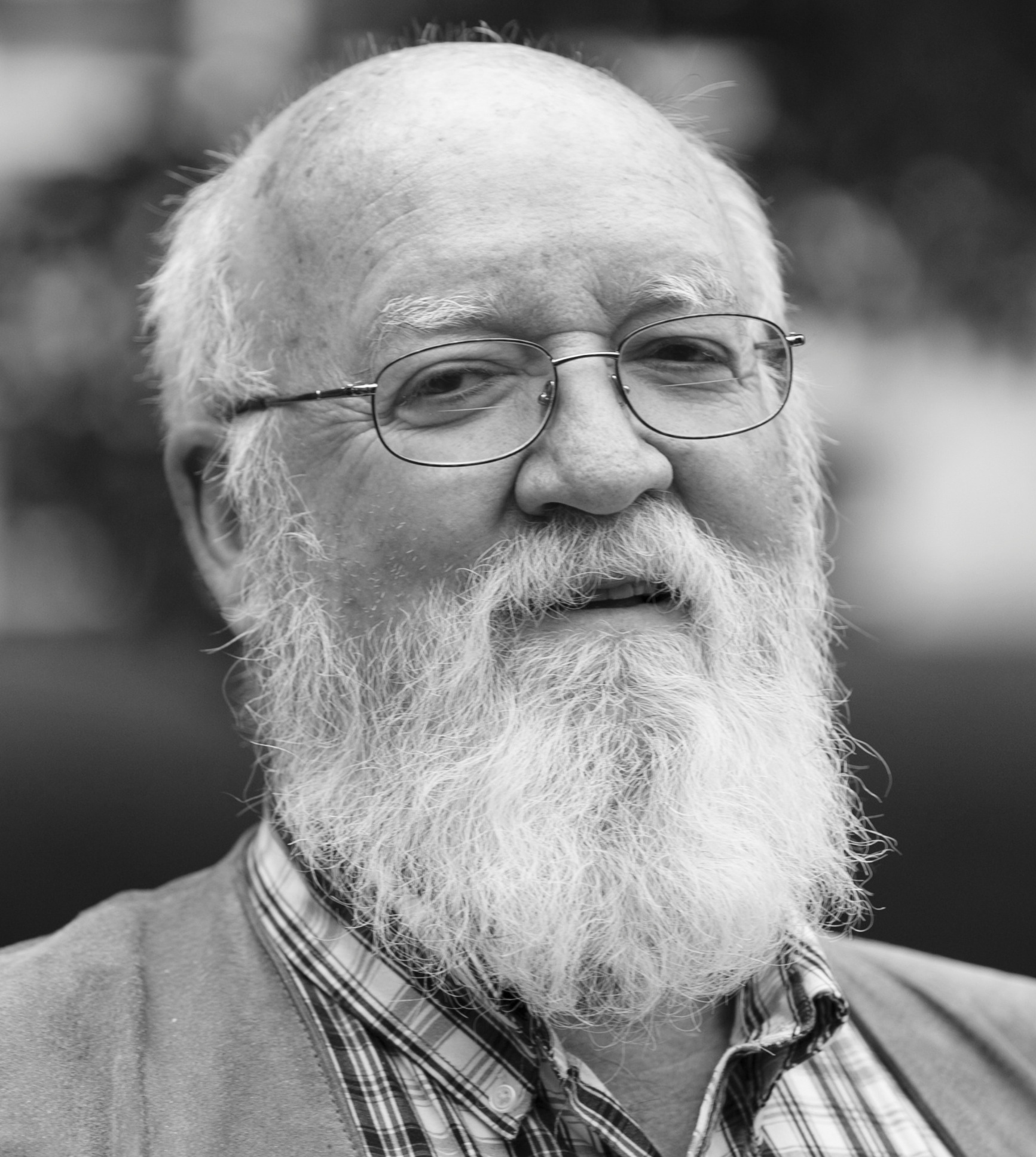
Daniel Clement Dennett (born March 28, 1942) is an American philosopher. Dennett's research centers on philosophy of mind and philosophy of science, particularly as those fields relate to evolutionary biology and cognitive science. He is currently the Austin B. Fletcher Professor of Philosophy and co-director of the Center for Cognitive Studies at Tufts University.
Dennett is the author of several major books on evolution and consciousness. He is a leading proponent of the theory known by some as Neural Darwinism.
Dennett is also well known for his argument against qualia, which claims that the concept is so confused that it cannot be put to any use or understood in any non-contradictory way, and therefore does not constitute a valid refutation of physicalism. This argument was presented most comprehensively in his book Consciousness Explained.
Selected works
- Brainstorms : Philosophical Essays on Mind and Psychology (MIT Press 1981) (ISBN 0262540371)
- Elbow Room: The Varieties of Free Will Worth Wanting (MIT Press 1984) - on free will and determinism (ISBN 0262040778)
- The Mind's I (Bantam, Reissue edition 1985, with Douglas Hofstadter) (ISBN 0553345842)
- Content and Consciousness (Routledge & Kegan Paul Books Ltd; 2nd ed edition January 1986) (ISBN 0710208464)
- The Intentional Stance (MIT Press; Reprint edition 1989) (ISBN 0262540533)
- Consciousness Explained (Back Bay Books 1992) (ISBN 0316180661)
- Darwin's Dangerous Idea: Evolution and the Meanings of Life (Simon & Schuster; Reprint edition 1996) (ISBN 068482471X)
- Kinds of Minds: Towards an Understanding of Consciousness (Basic Books 1997) (ISBN 0465073514)
- Brainchildren: Essays on Designing Minds (Representation and Mind) (MIT Press 1998) (ISBN 0262041669) - A Collection of Essays 1984-1996
- Freedom Evolves (Viking Press 2003) (ISBN 0670031860)
- Sweet Dreams : Philosophical Obstacles to a Science of Consciousness (Jean Nicod Lectures) (Bradford Books 2005) (ISBN 0262042258)
Texts on Dennett
- Daniel Dennett edited by Andrew Brook and Don Ross (Cambridge University Press 2000) (ISBN 0521008646)
- Dennett's Philosophy: A Comprehensive Assessment edited by Don Ross, Andrew Brook and David Thompson (MIT Press 2000) (ISBN 0262182009)
- Dennett, among others, is discussed in John Brockman's The Third Culture.
- On Dennett John Symons (Wadsworth Publishing Company 2000) (ISBN 053457632X)
Select Quote
A quote from Chapter 25 of Brainchildren that is fundamental to understanding Dennett's work:
"The first stable conclusion I reached … was that the
only thing brains could do was to approximate the responsivity to
meanings that we presuppose in our everyday mentalistic discourse.
When mechanical push comes to shove, a brain was always going to
do what it was caused to do by current, local, mechanical circumstances,
whatever it ought to do, whatever a God's-eye view might reveal
about the actual meaning of its current states. But over the long
haul, brains could be designed - by evolutionary processes - to
do the right thing (from the point of view of meaning) with high
reliability. … [B]rains are syntactic engines that can mimic
the competence of semantic engines. … The appreciation of
meanings - their discrimination and delectation - is central to
our vision of consciousness, but this conviction that I, on the
inside, deal directly with meanings turns out to be something rather
like a benign "user-illusion".




